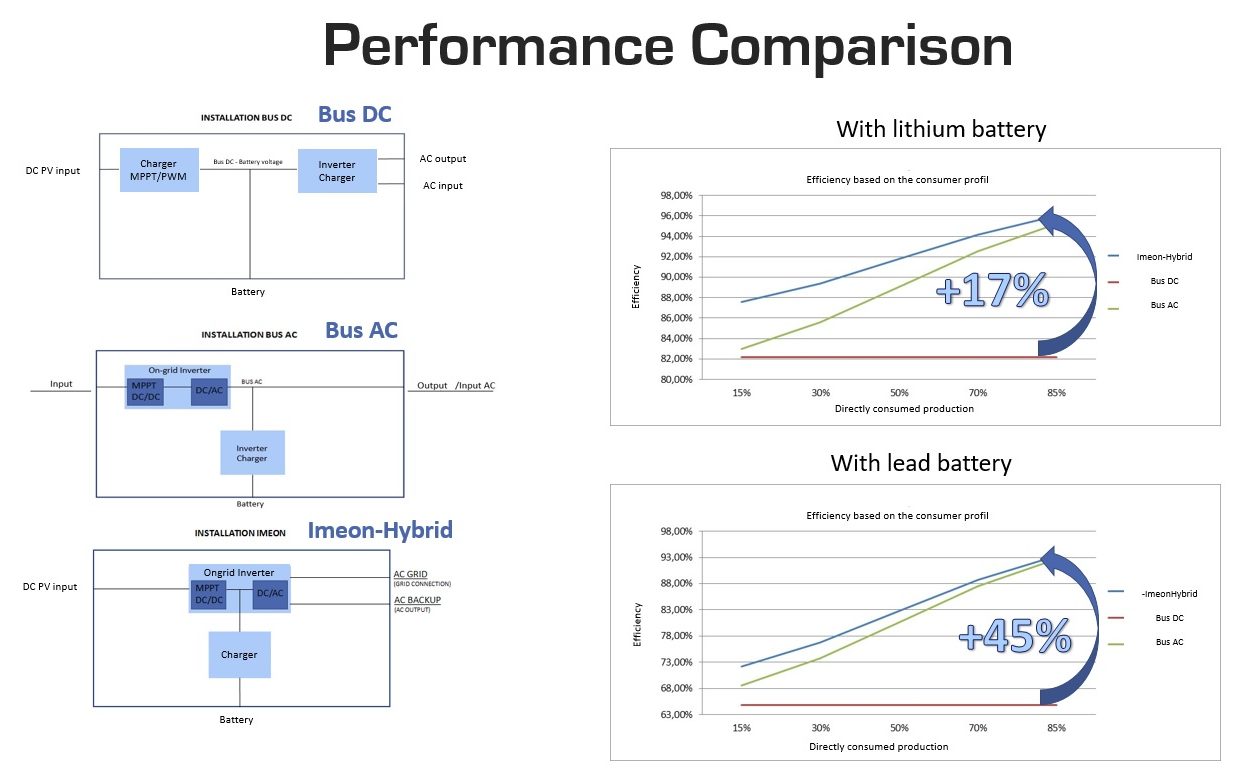Hybrid Inverters
Hybrid inverters, also known as grid-connected hybrid inverters or battery inverters, combine two independent components (solar inverters and battery inverters) into one device. Inverters are an important part of any solar energy system: you need to convert the inverters to convert the direct current (DC) generated by the solar panels into alternating current (AC) for household equipment. If you decide to add a battery system after installing a solar panel system with a traditional inverter, you need a separate inverter specific to the battery to convert electrical energy from AC to DC, which can store and discharge the battery.
However, when coupling a solar panel system with a hybrid inverter, a separate battery inverter is not necessary: it can be used both as a solar panel inverter and as a solar cell. It is important to note that if the hybrid inverter is designed for integrated storage, the technology can be installed without using batteries. In fact, many people choose to install hybrid inverters as a precautionary measure in the hope of adding batteries to the system in the future.
Inverter’s Comparaison
Below are yield curves that can help you to compare the yields of self-consumption installations with batteries according to the type of installation carried out (with hybrid inverter, with offgrid inverter on AC bus, with offgrid inverter on DC bus).

